Craft
14 Authors on the Life-Changing Impact of the NEA
The President wants to kill the arts program that’s vital to American literature

The President has finally released his budget proposal, and the news is not good for artists, museums, schools, or cultural institutions. As it currently stands, the plan would completely eliminate the National Endowment for the Arts and the National Endowment for the Humanities, bringing over fifty years of federal arts support to an abrupt end. Combined, the two programs’ budgets amount to less than $300 million, a fraction of the government’s $1.1 trillion in discretionary spending and about .002% of the federal budget. That money plays an outsized role in the nation’s culture and in the lives of Americans of all stripes. The NEA and NEH directly support artists, writers, magazines (like Electric Literature), libraries, local television stations, radio programs, therapy for military veterans, classes for underserved students, concerts, plays, exhibits and thousands of other projects; federal grants also motivate states and civil society organizations to provide even more funding. On signing the bill that created the programs, President Lyndon B. Johnson spoke of their value: “Art is a nation’s most precious heritage. For it is in our works of art that we reveal to ourselves and to others the inner vision which guides us as a nation. And where there is no vision, the people perish.”
Some of the most celebrated authors in American letters have written with the help of NEA grants, from Alice Walker and Norman Rush to Sherman Alexie and Joyce Carol Oates. In the days since the President’s proposed budget was first released, we reached out to 14 authors who have received NEA grants and asked them what getting one meant for their writing and what programs like the NEA and NEH mean to our country’s culture.
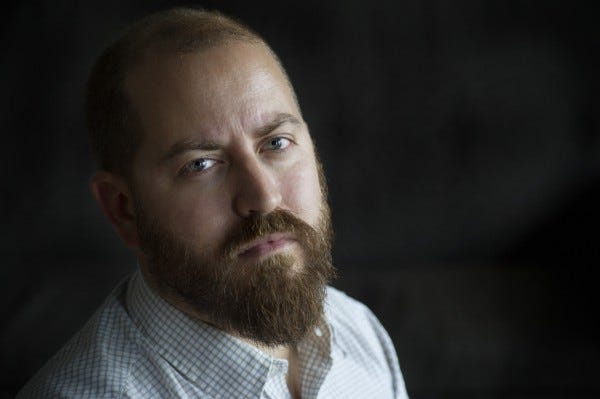
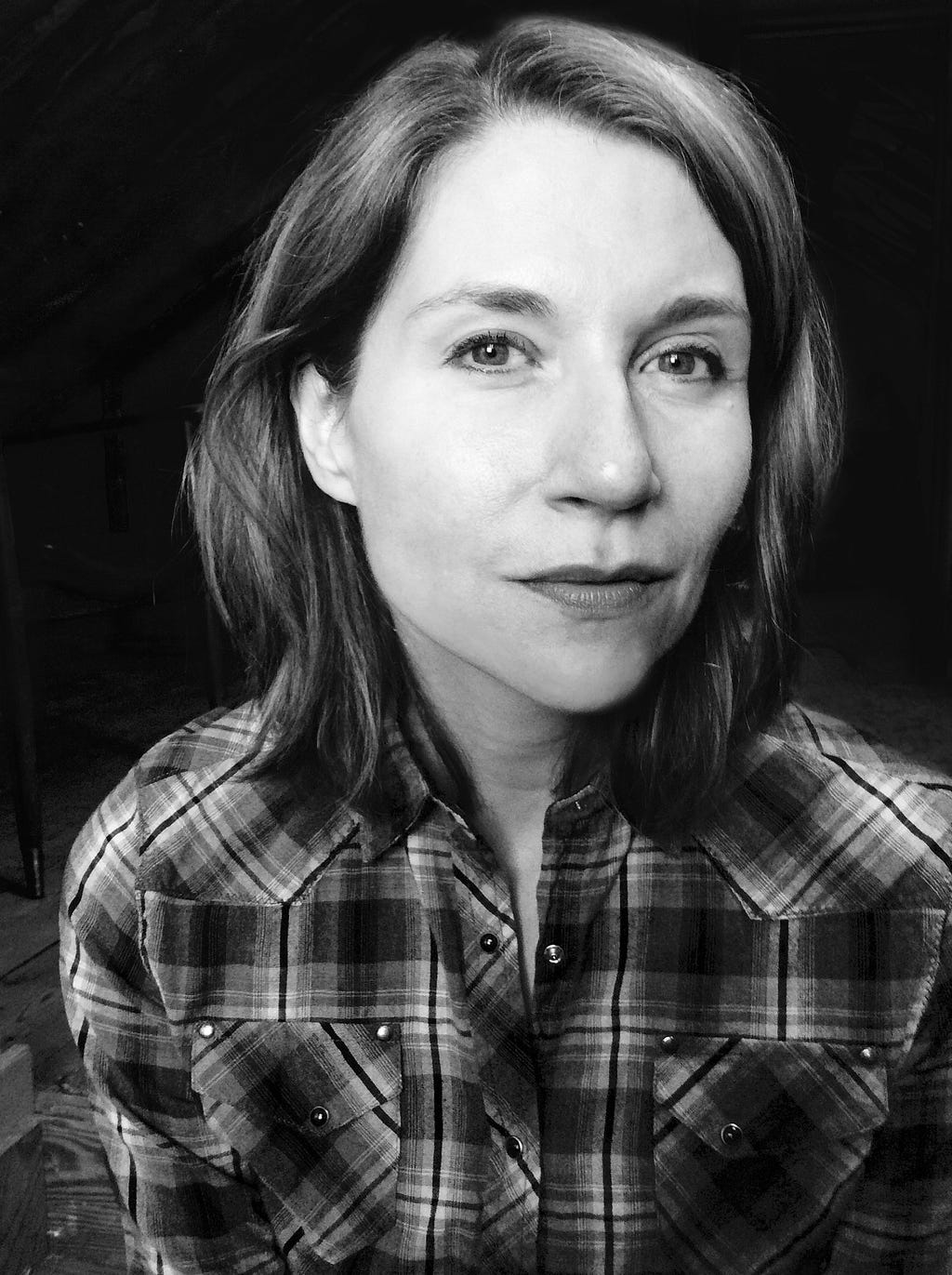

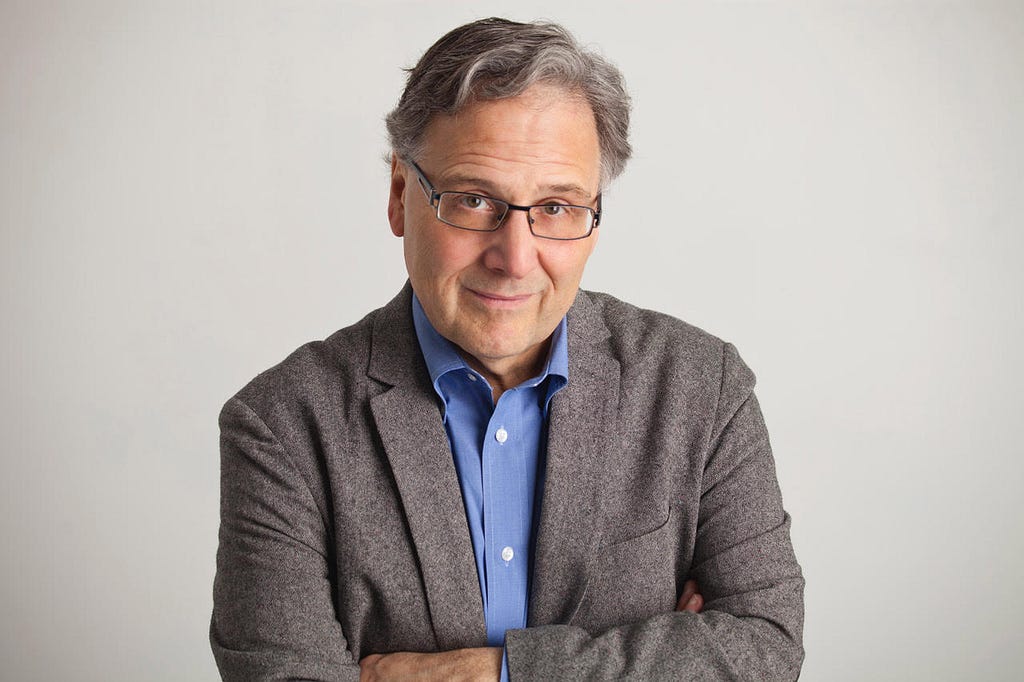
Jess Row, author of Your Face is Mine, Nobody Ever Gets Lost, and others
I received an NEA fellowship in 2003, and it allowed me to take leave from my (full-time) teaching job to write in the winter of 2005. That was the first time I’d ever received a grant to be a writer — to make writing my only occupation, for that short period. Though it wasn’t an enormous amount of money, it felt like a huge endorsement of my work. And often that’s the way it works with writers and other artists: the NEA grant arrives at the moment when you’ve begun a career but no one has heard of you yet. It’s a potent form of cultural capital, a calling card that helps you get jobs, readings, the attention of agents or publishers, and/or (if you’re lucky enough to teach full time) some breathing room away from the pressures of academic life.
What the NEA fellowship isn’t — this is a vital distinction — is a way to make a living. Writers and artists in other so-called “developed” countries, like Canada, can apply for government fellowships that actually support them, year after year. We don’t have anything like that in the US; what we have instead is a flourishing culture of creative writing in the academy. We don’t have a cultural consensus around the idea that artists should be encouraged just to be artists, and that the government should support them as a public good, a necessity. Instead, we have a nonprofit arts sector and a tiny government agency, the NEA, that do great things for artists, but in a marginal way that doesn’t make up for the robust government support we need and deserve.
Because American conservatives imagine freedom as a negative space — a wasteland where all traces of social cohesion or society, period, have been blasted away, like the desert setting of the Mad Max movies — nothing drives them crazier than the NEA. The NEA to them is like the National Parks where they’re not allowed to ride snowmobiles. Its vulnerability, its marginality, its mere suggestion that another system of value exists, makes it a perfect target, as it has been since the Reagan years. It’s been under threat so many times that sometimes I feel the Republicans will never actually move to dismantle it because they need it so badly as a target.
But I want to say something else, too: this conversation about the need to protect the NEA as it currently exists is important, but more important, to me, is to say that the NEA is not enough. We deserve better than this. American writers and artists deserve dependable, sustainable, career-long government support, and we deserve, like all Americans, affordable healthcare and housing, and the social safety net that makes it possible to do the work we do. We need to be speaking out for a progressive agenda that will make today’s NEA look like the band-aid it is.
“We deserve better than this. American writers and artists deserve dependable, sustainable, career-long government support, and we deserve, like all Americans, affordable healthcare and housing, and the social safety net that makes it possible to do the work we do..” — Jess Row
Jennifer Haigh, author of Heat & Light, News from Heaven, and others
My NEA grant bought me time to finish writing my fifth book, News From Heaven, a collection of short stories I’d been chipping away at for seven years. The support was more than monetary; it gave me the encouragement I needed in the final stretch of a project that the publishing industry wasn’t exactly clamoring for: stories from a dying town whose people had lost their livelihoods and identities when the coal mines closed. The truth is that writing literature is almost never profitable, but an occasional grant can sometimes make it possible. I hate to think of all the books that will never be finished if the NEA disappears.
“The truth is that writing literature is almost never profitable, but an occasional grant can sometimes make it possible.” — Jennifer Haigh
Porochista Khakpour, author of The Last Illusion and others
I was an NEA fellow in 2012 (meaning I applied in 2011). At the time I had just taken a job at a university that was for-profit and I knew I could not endure another minute of the unethical operation. I had a second novel that was done, but try as we could, my agent and I could not get it sold. I had a few other problems but didn’t know it — a fiancé that would be no longer soon and mysterious health problems that ended up actually being a very pernicious Lyme Disease case. I was 33 and in bad shape. I applied to NEA for the first time thinking it would just be practice for all the many more times I would be applying. I gave it my all, especially because I wanted to see what happened when we submitted a chapter of this second novel that was getting rejected everywhere. Well, about six months later I was on a fellowship in Germany, struggling in all sorts of new ways, and I found out I had received this amazing award. (I was actually on a weekend away in a bar in nearby Prague, drinking very heartily, when I got some frantic calls on a borrowed flip phone, from my agent. I couldn’t understand what it was all about — something about the government needing me?! — and I was certain I had done something wrong. I nearly spit out my svařák when I realized it apparently was one of those rare times I did something right!)
And in a year, the second novel sold (record time for this particular book that had already been circulating for a year and a half)! I’m almost certain it was because of the NEA — I suspect it gave my publishers courage to take on a very unusual and risky book. But before that happened I became very seriously ill for many months. Again, no one knew for sure what was happening until they finally found out it was Lyme. I was bedridden and had no health insurance and no job — and suddenly no way to work on a book as I’d lost most my ability to read and write at that point. I can truly say the NEA actually saved my life. I know we say that about art all the time — and I do believe art does have the power to save us. But here, it actually saved me in a non-art way too. It paid for all sorts of doctors and visits to doctors (I couldn’t drive) and it ultimately paid for many experimental treatments. If I didn’t have that award I don’t know if I’d be alive today. It was that chunk of money that got me better faster so I could return to my book, sell it, work on it, and move back to New York City where all sorts of other work was.
So many hardships come to those who choose a life of art — or rather art chooses them — and we often forget health and wellness is part of that story. The NEA not only gave me the confidence to believe in my second book when it felt like no one else did, but it also gave me the confidence to believe I could stay alive. I can’t imagine another gift like that in the world. I still somehow refuse to believe we will lose the NEA — at least not for good — because, to be very honest, I can’t imagine a world without it. How do you simply part with something that you owe your entire life to?
“The NEA not only gave me the confidence to believe in my second book when it felt like no one else did, but it also gave me the confidence to believe I could stay alive.” — Porochista Khakpour
John Domini, author of the story collections Bedlam and Highway Trade and the novel Talking Heads: 77 and others
My own NEA Fellowship came during the first decade after it was set up. so the amount was smaller — but then again, given cost of living, not much smaller. I set up payout in two lump sums, and for maybe 20 years after the first one arrived, it remained the biggest single check I’d ever received. Pretty cool, I guess, but what did it mean for my recently-fledged artistic soul? From my current perspective, torn and frayed, I can see that having an NEA firmed up my spine a bit. It provided what we’d now call “validation,” an attaboy with some authority behind it. I’m not so immune to what others think that this didn’t matter, or go on mattering; I enjoyed the same as recently as last fall, when the NEA came up in interviews for my latest book. Yet while such pickmeups are nice, I think now that Fellowship left me with a more durable nugget of, of wisdom or whatever. I believe that the two summers “off” the NEA paid for set up patterns I’ve known ever since that I needed to sustain: the daily commitment to dreaming and carpentry. I remember that during a roundtable discussion in Boston c. 1982 (at an early AWP), I heard John Leonard speak as one of those who helped design the Fellowship. Frowning and raising a fist, he defended a simple but essential core purpose: “We help artists buy time for their work. Nothing matters more for an Arts Endowment.”
“I heard John Leonard speak as one of those who helped design the Fellowship. Frowning and raising a fist, he defended a simple but essential core purpose: ‘We help artists buy time for their work. Nothing matters more for an Arts Endowment.’” -John Domini
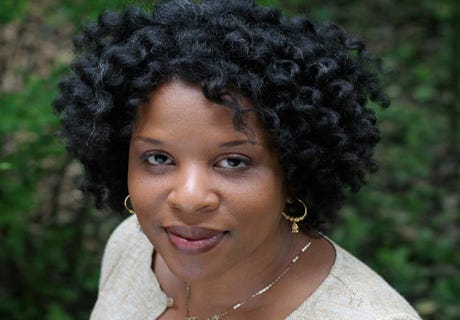
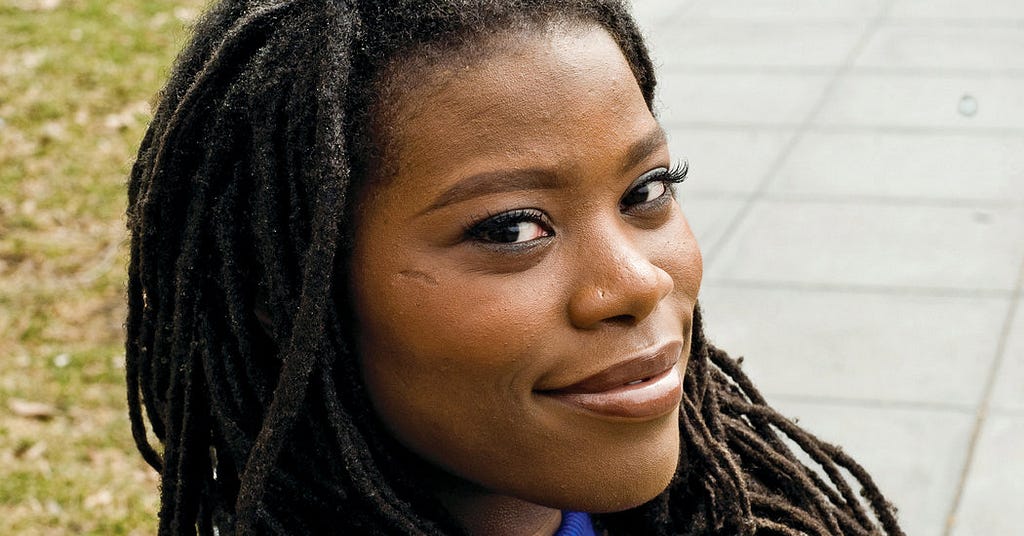
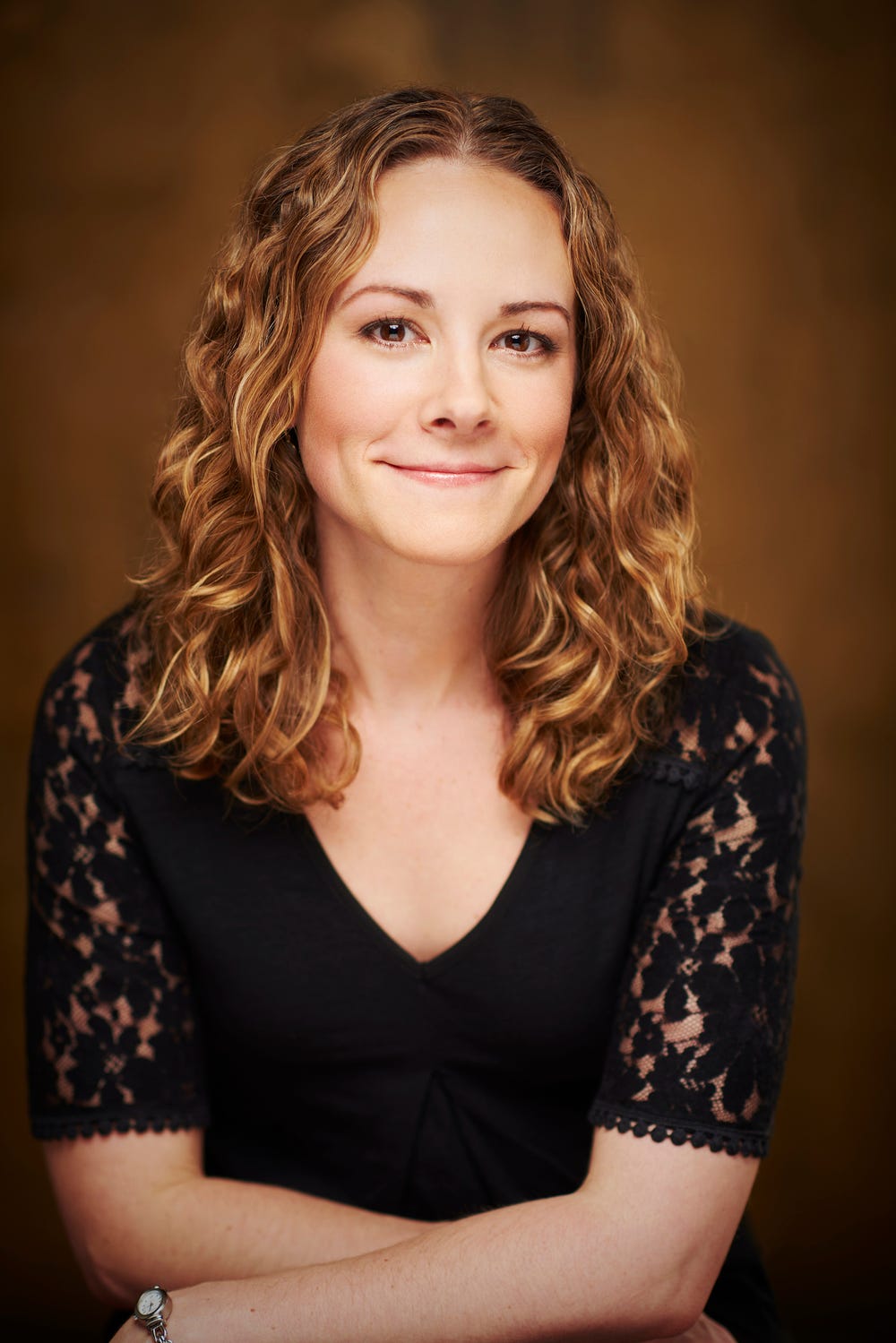

Tayari Jones, author of Silver Sparrow, The Untelling, and other books
The NEA’s contribution extends much farther than the $25K individual artist grants. Next time you go to a reading, participate in a conference, or attend a book festival — take a look at the program. In the corner you will likely spot the unassuming logo of the NEA. Without the support of the NEA the art we make would have a much harder time reaching the people for whom we make this art.
My novel, Silver Sparrow, is part of the NEA Big Read library. Through this program, books are given to school kids, seniors, inmates, and just everyday citizens. Recently, my book was handed out at a food pantry and then everyone was invited back for a book club discussion. Honestly, it was the most meaningful experience I have had as an author and it was all made possible by the National Endowment for the Arts.
“Recently, my book was handed out at a food pantry and then everyone was invited back for a book club discussion.” — Tayari Jones
Kaitlyn Greenidge, author of We Love You, Charlie Freeman
I was born middle-class but within seven years, we slipped below the poverty line. Before I was 21, I’d been evicted and moved more times than I could count. When bill collectors called our house, when benefits workers called my mom, sometimes they’d ask her why’d she have so many kids, if she knew she was going to be poor (for the record, there were three of us). When you grow up poor, you develop an instinctive distrust of bureaucracy, of forms, of government oversight. Usually because these programs are designed to be as difficult to understand as possible, designed to ensure you are slightly humiliated a bit more each time you interact with those entities, until you feel you can’t go back. You develop a form of poverty PTSD, a dread of forms, of constantly having to prove how unworthy you are. For this reason, I was wary of applying for the NEA — conceptually, I knew this was one of the few government agencies that was designed for something different, not for bland cruelty but for actual uplift. But those forms. But those having to justify who and what you were. But the NEA is a version of government that I was raised to believe in, even as I interacted with its punitive underside. The idea of government that believes something’s utility and necessity exists outside of some measurable outcome. The idea of a government that wants to hear as much as it can from its citizens, through their songs and dances and plays and stories. I don’t know if that government still exists. I think, if the NEA goes, we’ll have to recreate it ourselves.
“[T]he NEA is a version of government that I was raised to believe in, even as I interacted with its punitive underside. The idea of government that believes something’s utility and necessity exists outside of some measurable outcome.” — Kaitlyn Greenidge
Clare Beams, author of We Show What We Have Learned
The NEA directly changed my life — or the writer part of it, anyway. My book (We Show What We Have Learned) would not exist without it. This is true because the NEA contributes to funding my publisher, the marvelous Lookout Books, and because it funded the time I used to write and revise many of the stories that became We Show What We Have Learned. The phone call in 2013 telling me about my grant came just as it was becoming clear that the novel I’d spent eight years writing was not going to sell. I had an eight-month old, and we had just moved to a new city where I knew almost no one; I think I would have kept writing without that phone call, but I can’t be entirely sure. I didn’t know where I was going to find another eight years to try again. Making art is a long road, and the opportunities for encouragement along the way — while you’re in that subterranean mid-process land where all the work occurs, all the many hours that eventually produce the book, or play, or piece of music — are rare. It can be a frightening place, that land. It’s very very possible to get lost there. The NEA lit everything up for me. It’s done that for so many writers over the years. (There’s a full list of them here, searchable by year or name.) When I look at the list of those writers’ names, I think about what the world would be like without their books — because for some of them too, I’m sure, that light came at just the critical, fragile moment when everything might have turned a different way — and without the acknowledgment of and support for what art adds to our lives in general. I know I wouldn’t recognize that world.
“The NEA lit everything up for me.” — Clare Beams
Paul La Farge, author of The Night Ocean and others
I applied for an NEA literature grant to work on my novel The Night Ocean, all the way back in 2011, and I was eating lunch at the Village Diner in Red Hook, NY, the town where I live, when I got a call from Washington D.C., informing me that I’d got the grant. It was the best thing that happened to me that year. I used part of the NEA to travel to Florida and Mexico City, to see the places where my story took place, which is an amazing thing to do — you learn much more by actually going to a place than you ever could by looking it up on the Internet. When I was ready to write the book, I used the rest of the grant to take four months off from teaching. I’ve rarely worked so hard; I wrote about half of The Night Ocean during that time. I don’t know how the book would ever have got done without the NEA. Either it would have taken years more than it did, or I wouldn’t have been able to write it the way it needed to be written.
“I don’t know how the book would ever have got done without the NEA. Either it would have taken years more than it did, or I wouldn’t have been able to write it the way it needed to be written.” — Paul La Farge
Imagine American Literature Without Immigrants
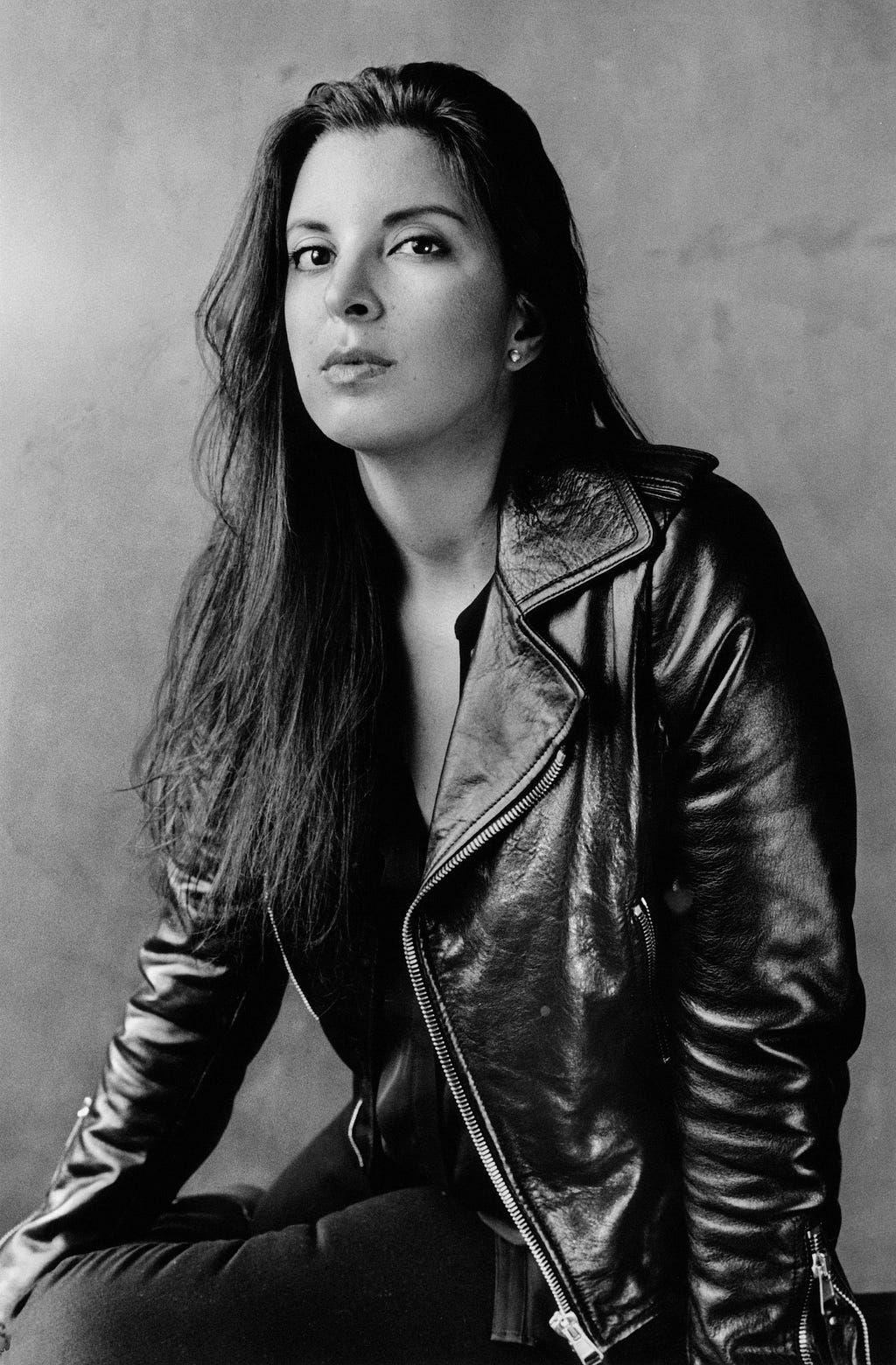

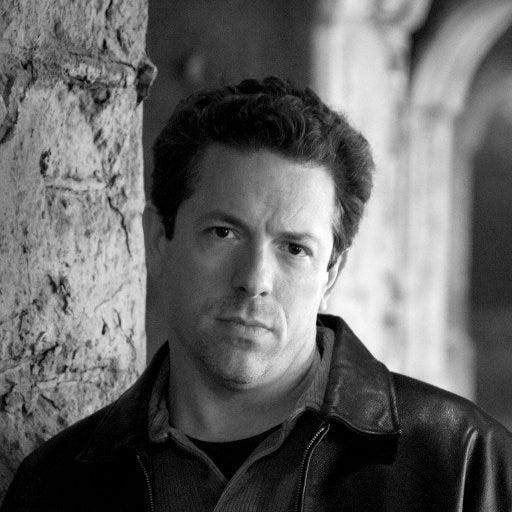
Patricia Engel, author of The Veins of the Ocean, Vida, and other books
I received a fellowship from the NEA in 2014 to support the research and completion of my novel, The Veins of the Ocean. As a result of the NEA fellowship, I was able to make several research trips without which the novel would have turned out very different. To know the NEA had invested in my work was an enormous source of confidence and solace in the otherwise very lonely journey of writing of a book. I felt comforted by their support, and this inspired and invigorated me as I neared completion. I am filled with gratitude to the NEA, and when I served as a judge for the 2016 fellowship cycle, I learned firsthand how much care and work the NEA devotes to the selection of its fellows and how much it believes in each recipient’s potential. The NEA is a bright spot in an artist’s undoubtedly uncertain future. Countless among my favorite books were written with the support of the NEA. Without the organization, the arts and culture of this country will suffer and, in turn, our literary and artistic landscape will become a much bleaker and darker place.
“The NEA is a bright spot in an artist’s undoubtedly uncertain future.” — Patricia Engel
R.O. Kwon, author of the forthcoming novel, Heroics
One night, I opened a short email from the NEA: I hadn’t been answering my phone, it said, and when would be a good time to talk? My body responded first. I found I was jumping before I could think, I might have an NEA. I wasn’t sure, though. Maybe they’d called just to let me know I’d made a terrible mistake on my application, and could I please save everyone’s time by never applying again? I lay awake through the night, afraid to be too excited.
When morning came, the news was wonderful: I was going to be a 2016 NEA fellow in literature. I’d been working on a novel for over eight years. I was so tired, and the grant provided encouragement I badly needed — how beautiful, to think that my country was giving me money to write. Within a few months, I’d at last finished and sold my book. The NEA provided vital help, and I’m so thankful. Hope runs a bit low these days, but I hope I wasn’t in one of the last classes of fellows. I’ve been calling Congress; art-makers, art-lovers, I hope you are, too.
“Hope runs a bit low these days…I’ve been calling Congress; art-makers, art-lovers, I hope you are, too.” — R.O. Kwon
Richard Thomas, author of Disintegration, Breaker, and other books
A few years ago I received a small grant from the NEA for my work on a group project here in Chicago, at Flying House. I was paired with another artist, Christina Loraine, and we collaborated on a creative endeavor — her painting with my words to showcase an interactive performance piece. It was very exciting.
What made the NEA grant so important was that it made me feel legitimate. I felt I was being recognized by an organization that had a lot of power and influence, a group I have respected and admired for a very long time. I was now part of a larger narrative, a group of artists that have influenced me, and my work.
Quite often when we write, we do it alone — in an office, or a classroom, or at home. We build worlds out of air, spill out blood on the pages, and share intimacies and truths, in an effort to relate, to entertain, to inspire. Sure, we have support systems — family, friends, peers — but any kind of attention from the NEA, well, that was something that meant a lot to me, something I held onto when sending out stories, piling up rejections, when I struggled to write or find an idea, or the right words. Much like my first professional sale — or any acceptance really, along with the nominations and awards that have come now and then over the years — the grant from the NEA gave me confidence to keep writing, to believe in what I was doing, and the money — that was just another level of respect, something that helped me feel real, alive, and successful.
When I think about the prospect of the NEA going away, it carves a bit of my heart out of my chest, leaving a void, the wrong direction for this country. It is a cold decision lacking in empathy and compassion, an illogical choice, one of many in a series of bad decisions. We are so much better than this, and the voices that rise up to condemn these actions, they will only get louder. Mine included.
“I was now part of a larger narrative, a group of artists that have influenced me, and my work.” — Richard Thomas


Kelly Link, author of Get In Trouble, Magic for Beginners and others
In 2005, I opened a letter telling me that I was going to be given an NEA grant in fiction for the year 2006. What an astonishing thing, to have it in print that a group of fellow writers, reading for the National Endowment for the Arts, thought that the kind of stories that I wanted to write were worth pursuing. How useful that money was! But how much better, even, to serve on the NEA panel three years later, in 2009, and be given the opportunity to read (anonymously) samples of other writers’ novels and stories. How much better even than that letter to sit with the rest of the panel, in a room in Washington, D.C., and discuss the work that we’d all been reading. We talked through the day (and I pumped milk in a storage room). We discussed the work that we’d read with great seriousness, with camaraderie, and also with gratitude, because it means something to serve on a jury of peers, and to see diverse and thoughtful and challenging and difficult work given the necessary support, space, and time that a grant provides. The kind of work made possible by such grants — and such an organization — enlarges and expands the boundaries of the country in which we live. The kinds of stories that we tell ourselves about ourselves matter. The work that the NEA does matters. The cost is small and the scope of its success is so very extraordinary.
“The kind of work made possible by such grants — and such an organization — enlarges and expands the boundaries of the country in which we live.” — Kelly Link
Catherine Chung, author of Forgotten Country
There’s a lot I could say about how my literature grant from the National Endowment of the Arts benefitted me personally: I was able to take several months off from my teaching job to write the pages that would allow me to sell my second novel, and was able to travel to libraries and universities in Germany to research the things I needed to know in order to write that novel, to say nothing of the boost I received in terms of morale and the prestige connected to such an award. And six years before receiving that grant, it was the National Endowment for the Arts that funded my fellowship to the MacDowell Colony, where I would finish my first book and meet other writers and artists who would come to form my tribe.
But far more valuable than any personal or professional benefit I’ve received from the NEA (which to be clear, was substantial and life-changing) is the larger social benefit we receive from its existence. It was created by Lyndon B. Johnson in 1965 to function “purely as an escalation of the spirit,” and over the years it has allowed our government to support (among others) thousands of writers and musicians and painters and arts organizations. It has done so in the belief that individual expression is part of our heritage, and can bring us together as a country made up of human spirits. The very existence of the National Endowment for the Arts has been encouragement to me as an artist and as an American, and most importantly as a member of a larger community who has been moved and changed by both its mission and the art that has been created with its support. It affirms that sharing our dreams and stories — with all our myriad backgrounds and experiences — is worth honoring, and can indeed expand and elevate our lives, our very spirits. What a thing it would be for us to give that up. What a thing to lose.
“It affirms that sharing our dreams and stories — with all our myriad backgrounds and experiences — is worth honoring, and can indeed expand and elevate our lives, our very spirits.” — Catherine Chung
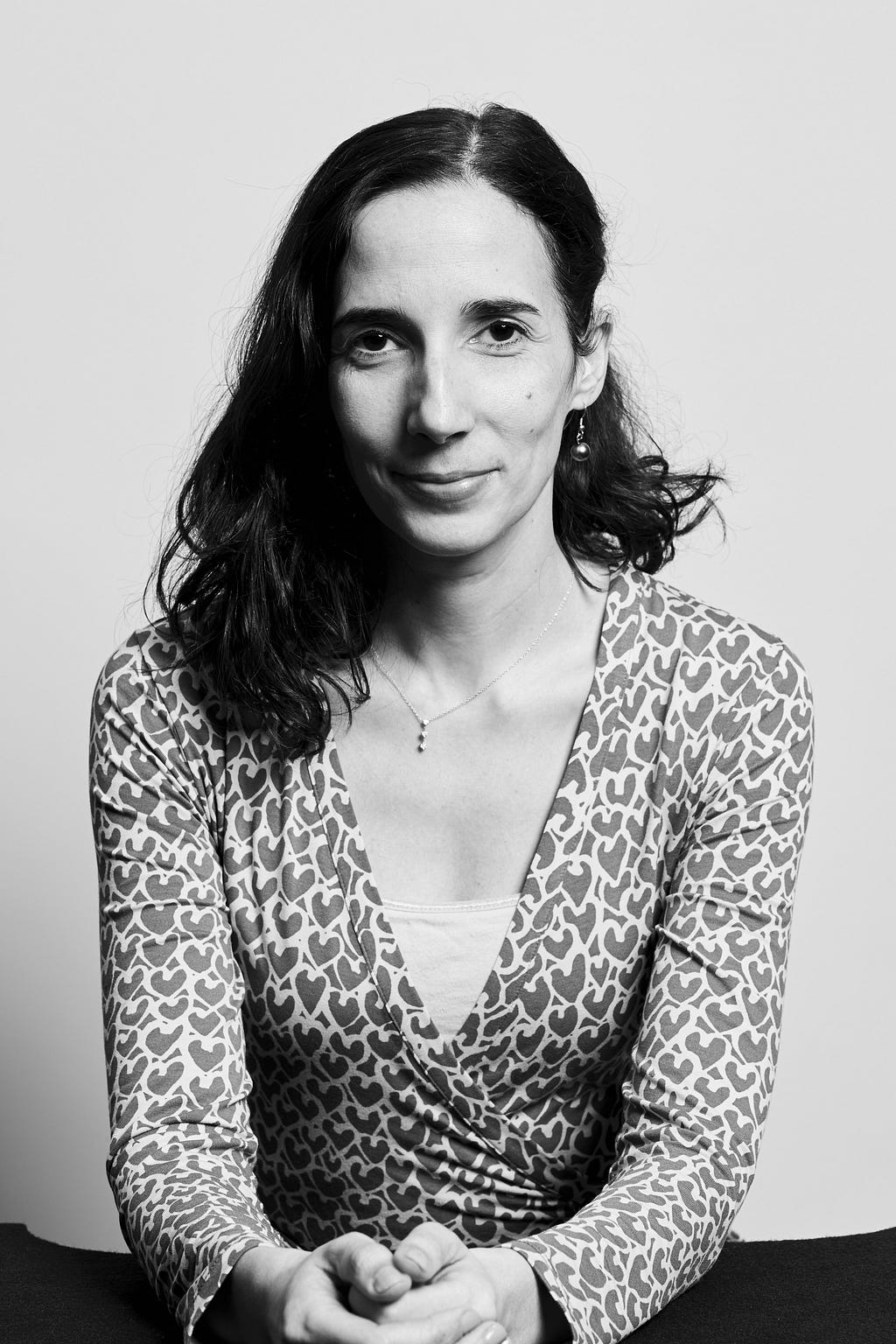
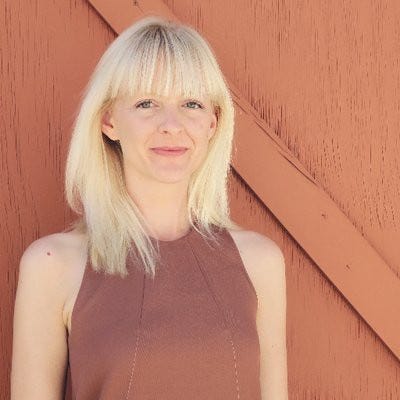
Jennifer Croft, writer, translator and editor
When I received the call from the NEA letting me know I’d been awarded a Literary Translation grant, my pen was poised over a contract to translate a massive work of mediocre criticism that I desperately did not want to sign. It would have taken me a year, and away from all the exciting projects I did want to work on, but I was pressed for money and didn’t really see any other option.
In my anxiety I initially mistook the NEA for telemarketers, gruffly requesting they call back some other time, but once that was cleared up, I rushed to recycle the page on which that contract had been printed and began translating Olga Tokarczuk’s brilliant novel Flights. I was also able to start work on my own novel, Homesick (first written in Spanish as Serpientes y escaleras), and to start saying no to the smaller academic translations I had been doing of necessity so I could pursue only the translations I was passionate about, like Romina Paula’s August, which will be released in a couple of weeks by The Feminist Press at CUNY.
It wasn’t just the money — the exposure provided by the NEA grant put me in touch with some amazing publishers for my various projects, and the following year I served as a judge for the Literary Translation grants, which connected me with even more fantastic literary folk. And everyone at the NEA was so consistently helpful and delightful that I truly can’t imagine where I would be now without their support. Receiving a grant from the NEA completely changed my life, as it has done for so many others, bringing essential art from all different (and many underrepresented) backgrounds to a wide audience. We cannot let it disappear.
“Receiving a grant from the NEA completely changed my life, as it has done for so many others, bringing essential art from all different (and many underrepresented) backgrounds to a wide audience.” — Jennifer Croft
Emily Raboteau, author of The Professor’s Daughter and Searching for Zion
Adding to what’s been articulated about the big impact of the NEA Literature Fellowship upon the individual careers of the authors represented on this page (and the greed underlying its possible repeal), I want to note that unlike many other prestigious literary awards that subsidize creative writers in the U.S., this one is judged blind. The names of the applicants are not permitted on the applications. The applications are disqualified if the authors identify themselves. As a former NEA recipient (2006) and judge (2015), I appreciate that the grant is solely based on the merit of the work submitted, rather than on favoritism, name-recognition, connections or Old Boy networks. This makes the process fittingly meritocratic for a program funded by a federal democracy. The work it supports is designed to be representative of our nation’s exceptional diversity of experience. The National Endowment for the Arts has arguably been more progressive about representation than the publishing industry. For writers — particularly those on the fringe of dominant society — not to have this opportunity will be a low-blow. It will also be unfortunate for readers who might have been entertained, influenced, or sustained by the work produced. I hate to think of the books that won’t be written because of such defunding, but it’s interesting to imagine the books that will in some way address the stupidity behind it.
The National Endowment for the Arts has arguably been more progressive about representation than the publishing industry.









